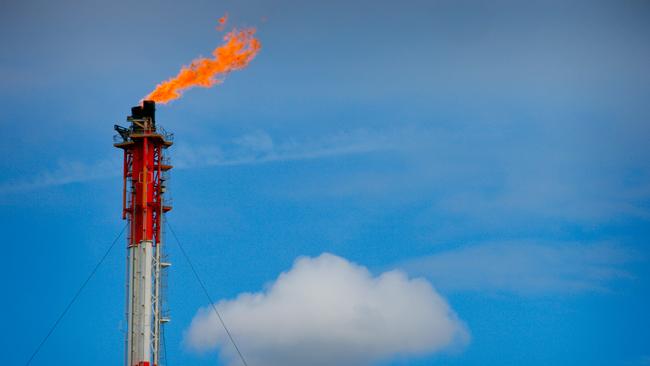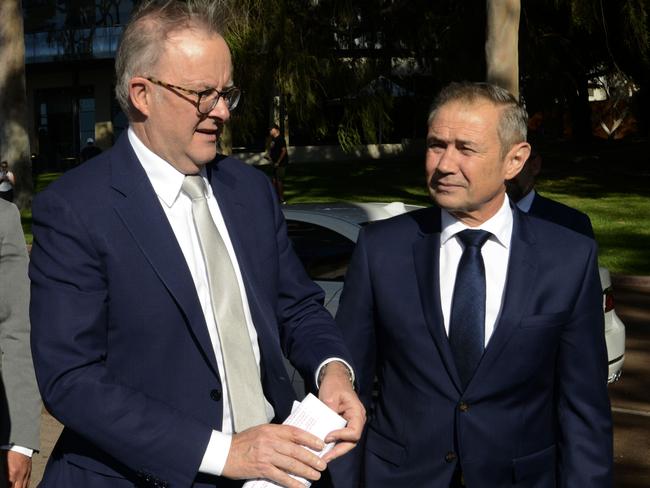Labor’s gas strategy is a step in the right direction
Several market and political drivers have forced Labor to finally recognise the value and long-term role for gas. But actions will speak louder than words.

Australia’s new Future Gas Strategy presents an amazing about-face from Labor. After showing nothing but ambivalence through to downright hostility towards gas since coming to power in 2022, Labor has now outlined a clear positive position on gas. Several market and political drivers have forced Labor to finally recognise the value and long-term role for gas. But actions speak louder than words, and there is still a long way to go before industry will have confidence to invest again. And green activism risks dragging Labor back towards its unproductive stance towards gas that has compromised our energy security, jobs, climate goals and economy.
The Future Gas Strategy is largely a summary of existing policy developments. To that extent, there is very little new. But the new positive tone towards gas is important and shouldn’t be underestimated. With the exception of uninfluential Resources Minister Madeleine King, Labor’s approach to gas has been ambivalent at best over the past two years. The Future Gas Strategy is the first clear statement from Labor that they see a positive long-term role for gas. It advocates developing additional gas supply that is consistent with Australia’s decarbonisation agenda. The strategy appears to have the support of cabinet (at least for now, albeit with grumblings). It appears the Right factions, especially those concerned with manufacturing jobs, have been influential. Even Energy Minister Chris Bowen has made constructive media comments lately on gas (but then again, Bowen has performed more backflips on gas than a Russian gymnast.)
The strategy is backed by over 170 pages designed to rebut the many flimsy anti-gas activist arguments that masquerade as analysis these days. It should provide the authoritative analytical and political cover needed for government and court decisions in favour of enabling gas supply, which have previously been hampered by activist and populist pressures alongside political dithering.
Several factors have driven the change of tune by Labor towards gas. First, climate ideals have finally hit market reality for federal and state Labor governments; they now find themselves having to subsidise coal-fired generation after their departments have advised of the energy security and affordability consequences of early retirements, especially without sufficient gas back-up.
Gas-intensive manufacturing jobs are being lost, many of which are unionised and a core constituent of Labor’s power base. The risk of shortfalls is also becoming clear, alongside the need for gas to help displace coal and sustain manufacturing, The argument of the need for more supply as the only sustainable solution is finally breaking through. And it is becoming apparent that Labor’s various attempts to force their outcomes via interventions have had limited success, and often backfired, indicating a change of approach is warranted.

The political winds have also changed. While the green Left is as obstinate as ever, climate change as a public polling issue has drastically dropped in importance versus cost of living and other issues. Labor’s Right faction is exercising influence to address the jobs issue: Gas is key to current and future manufacturing ambitions (including critical and green minerals/exports). And Western Australia and Queensland are proving key battlegrounds in the next election; both have large gas sectors and more widespread public support for gas.
Western Australia’s influence is perhaps proving the biggest game-changer. Labor’s position in WA is appearing increasingly delicate, and the gas strategy was important to them and Premier Roger Cook. Federal Labor’s anti-gas reforms over the past 18 months have disproportionately hurt WA. West Australians notice when Canberra goes after them, and can show how they feel about that on voting day.
Biden’s IRA has also vacuumed investment dollars out of Australia, so re-attracting foreign investment is key to Labor’s green manufacturing ambitions. Global trade partners’ concerns about Labor’s anti-gas policies have hampered Australia’s reputation. This needed to be addressed. The foreign companies and executives who will decide whether to invest in Australian hydrogen, CCS or green minerals projects are often one and the same with those who oversee gas investments. And they need reassurance Labor will protect their gas investments before they risk future green investments in Australia.
The strategy needs to be seen as a first step in a pro-gas campaign to support of the role of gas in Australia. While light on policy proposals, documents like the Future Gas Strategy are how public campaigns begin, providing the intellectual underpinning for further policy advances. Continued industry, union and government support is needed to build on the strategy. Political capital will have been expended by Labor to announce this, which should be supported by business.
Industry is nevertheless rightly wary of Labor’s intentions and follow through here. It comes after Labor’s 18-month long multi-pronged assault on the gas industry, including imposing gas price caps, a gas code of conduct, ADGSM reforms, PRRT changes, Safeguard carbon emissions reform (disproportionately targeting gas), government funding activist litigation against gas approvals, Nature+ reforms and IR changes.
It is going to take much more than a mere strategy document to see gas investment appetite fully return. It is probably premature to think the government will follow through on what is required.
This leaves acute risk that there will be insufficient concrete actions by Labor to avoid gas shortages later this decade. But the Future Gas Strategy is at least a decent step forwards.
Saul Kavonic is an energy analyst at MST Marquee.






To join the conversation, please log in. Don't have an account? Register
Join the conversation, you are commenting as Logout